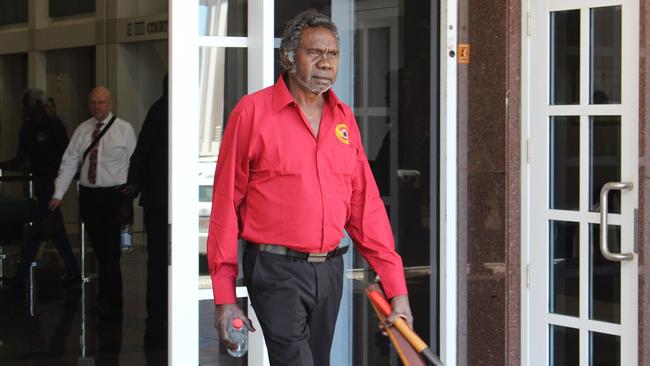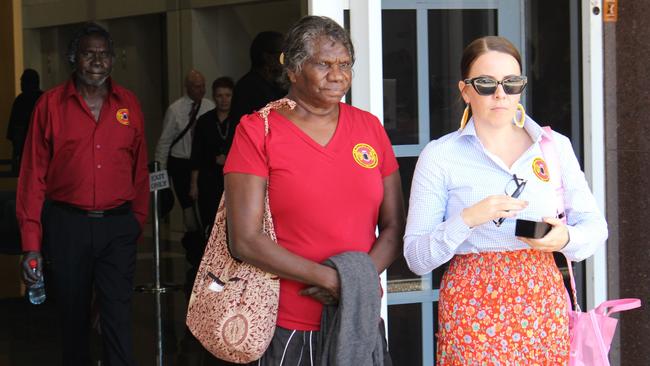Historic High Court native title case could result in ‘vast compensation’ claims for Territory traditional owners, court hears
Solicitor-General Stephen Donaghue KC said if the Commonwealth lost, Territory native title holders would be “entitled to vast compensation” that was “not available to native title holders in any other part of Australia”.

Indigenous Affairs
Don't miss out on the headlines from Indigenous Affairs. Followed categories will be added to My News.
The Territory’s traditional owners could be entitled to compensation for land “vastly more economically valuable than any other native title holder in Australia” if the Gumatj clan wins a historic case currently before the High Court.
The Arnhem Land TOs claim any land acquired by the Commonwealth between when the NT was surrendered by South Australia in 1911 and self-government in 1978 is subject to a Constitutional proviso that it be done “on just terms”.
In arguing the opposite on appeal from the Federal Court in a historic sitting of Australia’s highest court in Darwin on Wednesday, Commonwealth Solicitor-General Stephen Donaghue KC said that would leave the government exposed to “vast compensation” claims.
“The claimants’ case, as upheld by the Full Court, is that the effect of the surrender of the Northern Territory to the Commonwealth was to make native title rights in the NT immensely more valuable than native title rights anywhere else in Australia,” he said.
“The effect of the claimants’ argument is that for the period from 1911 through to the grant of self-government for the NT in 1978, a vast but indeterminate number of grants to land in the Territory were invalid.
“(Therefore) native title holders in the Territory are, on the case against us, entitled to vast compensation by reason of section 51(xxxi) (of the Constitution), including interest, that is not available to native title holders in any other part of Australia.”

But Mr Donaghue said former High Court justice Sir Gerard Brennan’s leading judgment in Mabo had founded the concept of native title in the proposition that it was recognised only on the basis that it was “inherently defeasible” by the Crown.
In the famous judgment, Justice Brennan found the court was “not free to adopt rules that accord with contemporary notions of justice and human rights” if it would “fracture the skeleton of principle which gives the body of our law its shape and internal consistency”.
On Wednesday, Mr Donaghue said the government was not “departing or undercutting” what he called “the greatest judgment, or one of the great judgments” in the history of the High Court.
But he said the legal doctrine of tenure was such “a basic doctrine of the land law” that it “could not be overturned without fracturing the skeleton”.
“It’s a limitation on the capacity to recognise native title because if the recognition of native title would have disturbed the grants of interest in land in exercise of the sovereign power, that would have fractured an essential postulate of the system of land law,” he said.
The court is due to sit in Darwin until Friday.





